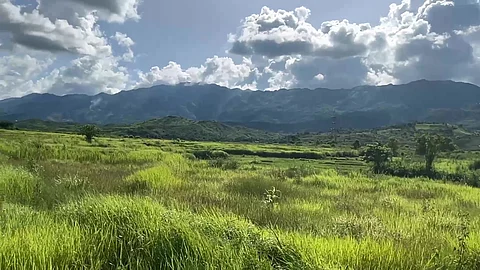
- Home
- Live Blog
- Breaking News
- Top Headlines
- Cities
- NE News
- Sentinel Media
- Sports
- Education
- Jobs

CHURACHANDPUR: Manipur's previously thriving agricultural lands are now hauntingly quiet, reflecting the anxieties and doubts that have engulfed its farming communities since ethnic strife began in May 2023.
Once vital to the state’s economy and the source of income for over 60% of its residents, agriculture in Manipur is currently suffering from the effects of ongoing conflict between the Meitei and Kuki groups. Lush farmlands have transformed into no-man's-lands characterised not by farming equipment and crops, but by barricades and trepidation.
In the village of Ujungmakhong in Churachandpur district, the harshness of this predicament is evident. Farmers like Kaiminlien have been unable to access their fields for almost two years.
“Today, I am planning to inspect my farmland. Since it's located in the buffer zone, I've been unable to cultivate it,” he shares. “A lot of grass has taken over. The smaller weeds can be removed with herbicide. Up until now, we haven't received any assistance, which frustrates me greatly.” The village, which hosts around 30 families, collectively possesses about 15 hectares of land. Currently, all of it remains uncultivated, a casualty of the violence that has jeopardised both livelihoods and food production. The wider ramifications of this neglect are profound. Agriculture makes up nearly 22% of Manipur's Gross State Domestic Product (GSDP), and with farming activities halted, the economic structure of the state is deteriorating.
Dr Thiyam Bharat Singh, an Associate Professor at the Centre for Study of Social Inclusion and Inclusive Policy (CSSI) at Manipur University, reports that more than 5,127 hectares of farmland have stayed fallow for two years. "This has led to a loss of over 15,000 metric tonnes of rice," he states. "Such a drastic decrease in food production drastically impacts the GSDP. The ethnic conflict has undermined agriculture in Manipur, leading to a significant food shortage." The situation has rendered farmers on both sides of the buffer zone impotent. Once hopeful fields have turned into areas of conflict, where farming is hindered not by natural disasters, but by persistent security risks. (ANI)
Also Read: Steadfast in our resolve to restore stability: Manipur DGP Rajiv Singh
Also Watch: